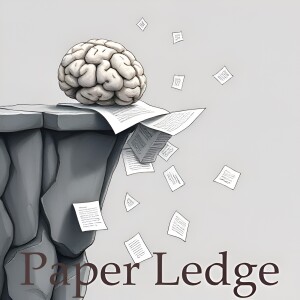

Hey PaperLedge crew, Ernis here, ready to dive into some seriously fascinating research! Today, we're tackling a paper that's aiming to revolutionize how we diagnose those tricky Mendelian diseases.
Now, what are Mendelian diseases? Think of them as genetic conditions caused by a single faulty gene – like a typo in the recipe for building your body. Getting the right diagnosis is super important because it opens the door to personalized treatments and helps families make informed decisions about having kids. Imagine it like having the exact key to unlock a specific health solution.
The problem is, current diagnostic methods aren't always up to the task. Some aren't accurate enough, while others rely on HUGE amounts of data to train complex machine learning models. It's like trying to assemble a puzzle with half the pieces missing, or needing a supercomputer just to figure out what to eat for breakfast!
That's where this innovative new approach comes in. The researchers have created something they call an "LLM-Driven multi-agent debate system" – or MD2GPS for short. Don't let the jargon scare you! Think of it as a team of expert detectives, each with their own special skills, working together to solve a medical mystery.
- One detective, the "data-driven agent," is like a seasoned investigator who pores over mountains of evidence – in this case, patient data.
- The other, the "knowledge-driven agent," is like a brilliant medical historian who relies on their deep understanding of genetics and disease.
Here's the cool part: these detectives debate! They present their findings, challenge each other's conclusions, and ultimately arrive at a more accurate diagnosis. And to make it even better, the system uses a language model to explain its reasoning in plain English – no more deciphering complicated medical reports!
"It utilizes a language model to transform results from data-driven and knowledge-driven agents into natural language, then fostering a debate between these two specialized agents."So, how well does this detective team perform? The researchers tested it on a bunch of cases and found that it significantly improved diagnostic accuracy. In one particularly challenging set of cases, it even helped identify potential problem genes in several patients, slashing the diagnosis time by a whopping 90%! That's like going from weeks of agonizing waiting to just a few days.
But here's what really got me thinking: This system isn't just a black box. The methods used by each "detective" can be swapped out and customized. This means that MD2GPS could potentially be adapted to diagnose and research other complex diseases beyond Mendelian conditions!
Why is this research important, you ask?
- For families dealing with genetic diseases, this could mean faster, more accurate diagnoses and access to personalized treatments.
- For doctors, it offers a powerful tool to aid in diagnosis and reduce the burden of complex cases.
- For researchers, it provides a flexible platform for exploring the genetic basis of disease and developing new diagnostic strategies.
So, what do you think, PaperLedge crew?
- Could systems like MD2GPS eventually become standard practice in hospitals and clinics?
- How might we ensure that these technologies are used ethically and equitably, so that everyone has access to the best possible care?
- And what are the potential downsides of relying on AI for medical diagnosis? Could it ever replace human expertise and intuition entirely?
Let me know your thoughts in the comments! Until next time, keep those neurons firing!
Credit to Paper authors: Xinyang Zhou, Yongyong Ren, Qianqian Zhao, Daoyi Huang, Xinbo Wang, Tingting Zhao, Zhixing Zhu, Wenyuan He, Shuyuan Li, Yan Xu, Yu Sun, Yongguo Yu, Shengnan Wu, Jian Wang, Guangjun Yu, Dake He, Bo Ban, Hui Lu
More Episodes
All Episodes>>Create Your Podcast In Minutes
- Full-featured podcast site
- Unlimited storage and bandwidth
- Comprehensive podcast stats
- Distribute to Apple Podcasts, Spotify, and more
- Make money with your podcast












